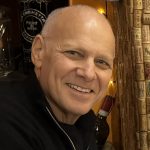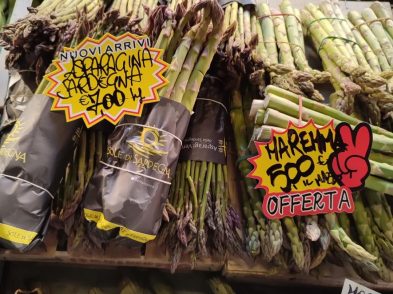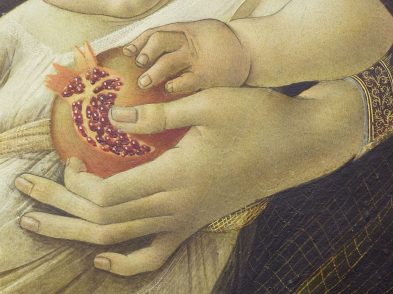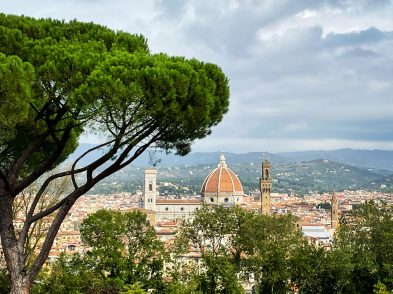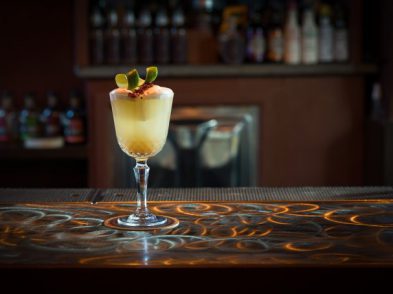“Man’s most fundamental need is to experience his existence as meaningful.”
—Christian Norberg-Schulz
Whether you are a first-time visitor, a returnee or a permanent resident, it is nearly impossible not to be captivated by Florence’s unique charms, as Larry Basirico, professor of sociology, chair of the department of sociology and anthropology and former dean of international programs at Elon University, discovered while serving as visiting professor at Accademia Europea di Firenze (AEF) in fall 2013 and living here with his family. Basirico, who has authored articles about identity and the family as well as introductory-level sociology textbooks, began this series, ‘Experiencing Florence,’ in TF 198 digital version (theflr.net/experienceflorence).
During my family’s stay in Florence, we also travelled to other places in Italy. They were magnificent. But it was Florence where we felt most inspired to be meaningfully, deeply and creatively engaged in our lives. Even more indicative of Florence’s magic, we felt that we shared this sense of purpose and meaning with other Florence dwellers.
The pattern was familiar. We’d leave the Santa Maria Novella train station and immediately encounter Florence’s first great basilica and the train station’s namesake. A few steps more, depending on our path, we caught glimpses of the Duomo darting in and out of view, as if playing ‘peek-a-boo’ with us. Everything in our path ‘home’ made us feel alive and part of something special. The draw of piazza della Repubblica, piazza della Signoria, the Arno, the rust-colored medieval architecture and the deep blue sky that it frames was hypnotic and served as a frame of reference for the genius of Brunelleschi, Michelangelo, Leonardo, Dante, Botticelli, Donatello, Ghiberti, Giotto and the Medici family.
Florence isn’t the only city that has a powerful essence. Genius loci is an ancient Roman concept that originally denoted the guardian spirit of a place. The concept has evolved to refer to a place’s underlying character. Now it’s largely about the relationship between architecture and sense of place. Christian Norberg-Schulz, the Norwegian architect and philosopher, states in his definitive book on the subject, Genius Loci: Towards a Phenomenology of Architecture (1980), ‘A place is a space which has a distinct character. Since ancient times the genius loci, or “spirit of place,” has been recognized as the concrete reality man has to face and to come to terms with in his daily life.’ There is a relationship between various natural and human-made elements and this relationship has a profound effect on one’s cognitive development and perception of existence. Meaning and structure are inextricably linked.
Norberg-Schulz explores genius loci as a derivative of the relationship between topography (such as rivers and mountains), cosmic order (as suggested by the conditions of the sky and light), buildings and architecture (including their color and design) and cultural landscape (ideas, values and beliefs shaped by history and the passage of time). Genius loci, therefore, varies from place to place. As examples, he describes Prague’s sense of mystery; Khartoum’s sense of a powerful natural order; Rome’s sense of an eternal presence and being the capital of the world.
What is the genius loci of Florence? While the physical structure of Florence is integral to it, what really captured our hearts and minds is the sense of community and shared meaning. The historic center is primarily pedestrian, relatively small, framed by historic piazzas and the Arno, and it is dense with inescapable evidence of the geniuses who shaped it. There is an intersubjectivity among tourists and residents alike, who know that the David, the Vasari Corridor, Palazzo Vecchio, the Uffizi, the Ponte Vecchio and other great sites are on each other’s minds. We have experienced the performances of the same street musicians, artists and mimes. We have shared the sounds of Giotto’s campanile. We collectively ‘played hide and seek’ with the Duomo, the Piazza della Repubblica and the Palazzo Vecchio and know that others in the city are experiencing the same the spirit of greatness.
This sense of community is what makes Florence unique. Antonio Vanni, director of the Jazz Performance program at AEF and former Uffizi guide, explained it this way to me, ‘What makes Firenze special is that you feel that everything you experience is done by man like you. Bigger cities, like Rome, express a transcendent reality. God is everywhere. It’s magnificent. But Rome pushes you down. She tells you how big she is. Firenze is a city built by merchants for merchants. She makes you feel you are part of her and celebrates us as individuals. The Tuscan blue sky over Firenze is beautiful, but that sky is also in Arezzo. It is the sense of community and the constant common understandings about the greatness of Firenze that give it its genius loci. It’s not intimidating but it asks you to be better and you feel that sense of creative passion.’ In Florence, we have a shared sense of the greatness of humanity’s capabilities driving us to excel further. This shared meaning is a powerful source of community.
Genius loci is more than a collection of natural and human-made sites. It is a quality of being that defines the very existence of the people who occupy a place. Experiencing the genius loci of Florence and its sense of community will do nothing less than enhance the meaning of one’s life while here and, very likely, permanently.

